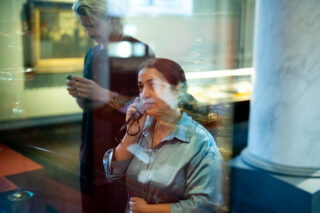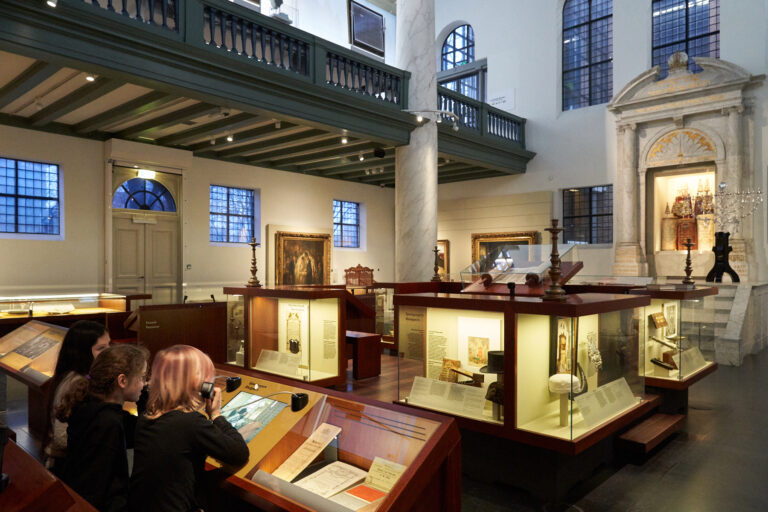What's being Jewish all about?

There’s always lots to see at the Jewish Museum. Discover how the first Jews arrived in the Netherlands and how they built a life for themselves. Learn about Jewish traditions and customs. See how we remember the Holocaust and celebrate Jewish life today.
Exhibition
Always open
Jewish Museum
Nieuwe Amstelstraat 1, Amsterdam
The first Jewish lawyer
At first, Jews weren’t recognized as equal: they were barred from many trades and professions. It was not until 1796 that Jews were given full rights as citizens. For Jonas Daniël Meijer (yes, they named the square beside the Portuguese Synagogue after him) it meant he could become the country’s first Jewish lawyer. And he was only 16! Find out more about him and what he did for the Dutch constitution.
Aletta Jacobs
Jews may have had equal rights, but for women there was still a long way to go. Not that Aletta Jacobs was about to stand and wait. She had known since she was six that she wanted to be a doctor, but women weren’t allowed at university. At the age of 17, she wrote to the government to ask for permission to study medicine. She got the approval she needed, graduated and set up as a family doctor in Amsterdam. In our museum you’ll learn what Aletta Jacobs’s determination did for women’s suffrage.

Why do Jews wear kippot?
Jews cover their head as a reminder that there’s a higher power. It’s customary for men; women can do it too. Wearing a head-covering is especially important in synagogue, for the rest it’s up to you. You can find out more about customs like these in the Great Synagogue at the Jewish Museum. Since this is no longer a sanctified building you don’t need to wear a kippah.

"Superb museum and a mine of information and interactive learning. Wonderful place to discover (more) about Jewish culture, language and history."
Michiel Schuijer, visitor
How did that hatred of Jews start?
Before the Second World War, two-thirds of the Jews in the Netherlands lived in Amsterdam. The old Jewish quarter, where our museum now stands, was the heart of the community. Many Jews lived in poverty. Conditions improved as socialist reforms were enacted, until the Second World War brought this to a brutal end. What was life like before, during and after the war? And how do we treat people who are different?
